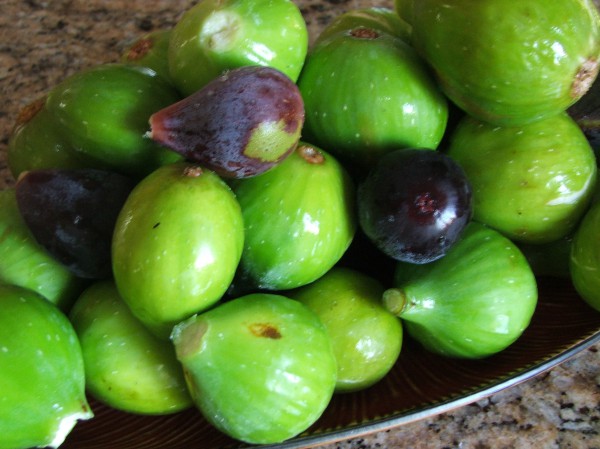Figs are among the oldest of all the fruits, offering many healing attributes. The nutritional composition and medicinal properties of the Fig makes it one of the best fruits for an all natural approach to a healthier system.
This type of fiber helps control blood sugar levels and lowers cholesterol by binding it in the digestive tract. It is also an excellent source of fiber.
Most theories linking high dietary fat intake and low fiber intake with colorectal cancer, and large consumptions of alcohol is associated with lung cancer, breast cancer, stomach cancer (digestive system) and liver cancer.
A number of studies show that eating fruits and vegetables may help slow down the cancer, and because of all the benefits of the Fig, it should be the fruit of choice.
Figs have a high content of potassium; which when combined with calcium assists in regulating blood pressure, and thus helps protect the breast cancer. Figs contain mineral magnesium, which are extremely important in three ways:
Regulating the metabolism of muscle and nerve cells
- Regulating the neuromuscular conductivity for normal heart function
- Regulating the elasticity (tone) of the blood vessels, and thus better control of blood pressure.
Next comes the benefits of magnesium. It is the most important electrolyte of the cell area and is one of the three main elements of bones with calcium and phosphorus. Fig leaves are edible and medicinal. It has been shown to have anti-diabetic effects, lowering triglycerides, and inhibiting the growth of cancer cells.
As a solution it has a strong antiseptic, fungicide and disinfectant action. It also helps with other intestinal diseases, such as worms and problems with fungus, such as warts.
It can also help soften corns and calluses. The procedure for the treatment of warts is simple – the solution should be put on the wart or corn, and after a few days of the above procedure they will fall off.
Energy and nutritive value
Energy value of 100 g of fresh figs is 74 kcal / 310 kJ. thereof containing 19.2% carbohydrate, 0.75% protein and 0.3% fat. From fresh fig contains minerals potassium (232 mg), calcium (32 mg), magnesium (17 mg), phosphorus (14 mg), manganese (0.1 mg), iron (0.4 mg), selenium (0.2 mg), copper (0.07 mg) and zinc (0.15 mg). Since fresh figs contain vitamin B complex vitamins, vitamin E, and K, and a bit of vitamin C. In 100 g of fresh fig fruit is 3 g fiber, 31 mg of phytosterols, beta-carotene, 85 mg
Check this Customized Fat Loss by Consuming Fig!!!
1. High levels of magnesium – Magnesium protects the body from stress, its important for strong bones, immune system and brain, promotes health and vitality, cure numerous diseases and slow aging. Dried figs contain three times more magnesium than fresh figs.
2. Has an abundance of potassium, calcium, iron, phosphorus, copper, vitamins B6, C and beta – carotene. Fig is low fat and contains more fiber than any other fruit or vegetable. Pectin is a fiber that lowers cholesterol, while tryptophan combats problems with insomnia and circulation .
3. High levels of natural sugars – High levels of fructose allows the brain to work faster and perceive better. Diabetics should be careful with consumption of dried figs.
4.Dried figs are a source of many nutrients. The nuts combined with a healthy meal are great snacks, and something recreational and professionals athletes are taking advantage of now. Figs cure diseases of the liver, throat, respiratory system, and bladder.
5.Containing plantsterols – proven to have beneficial effects on cholesterol in blood and plant sterols as Stigmasterol and Lanosterol bind to molecules of cholesterol and prevent its absorption .
6. anti-diabetic effects – Due to the presence of benzaldehyde and coumarin, the Fig is advantageous in preventing prostate cancer and skin.
7. Fresh figs contain 80 % water and 20 % natural sugar -Sweet taste of figs can be combined with savory meals.
Source: secretly healthy



